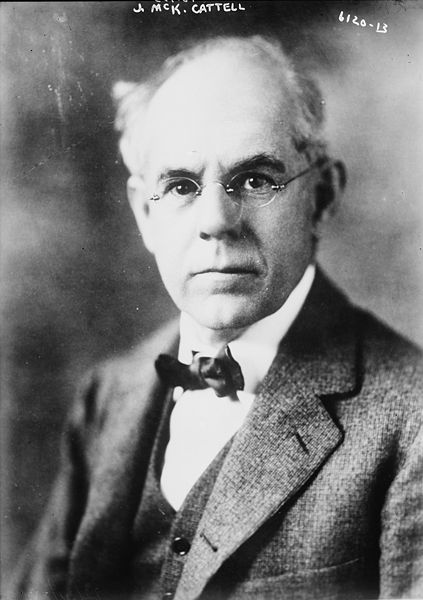John Broadus Watson was an American psychologist who popularized the scientific theory of behaviorism, establishing it as a psychological school. Watson advanced this change in the psychological discipline through his 1913 address at Columbia University, titled Psychology as the Behaviorist Views It. Through his behaviorist approach, Watson conducted research on animal behavior, child rearing, and advertising, as well as conducting the controversial "Little Albert" experiment and the Kerplunk experiment. He was also the editor of Psychological Review from 1910 to 1915. A Review of General Psychology survey, published in 2002, ranked Watson as the 17th most cited psychologist of the 20th century.
John B. Watson
Psychology is the study of mind and behavior. Its subject matter includes the behavior of humans and nonhumans, both conscious and unconscious phenomena, and mental processes such as thoughts, feelings, and motives. Psychology is an academic discipline of immense scope, crossing the boundaries between the natural and social sciences. Biological psychologists seek an understanding of the emergent properties of brains, linking the discipline to neuroscience. As social scientists, psychologists aim to understand the behavior of individuals and groups.
James McKeen Cattell, the first psychologist in the United States
Wilhelm Wundt (seated), a German psychologist, with colleagues in his psychological laboratory, the first of its kind, c. 1880
One of the dogs used in Russian psychologist Ivan Pavlov's experiment with a surgically implanted cannula to measure saliva, preserved in the Pavlov Museum in Ryazan, Russia
False-color representations of cerebral fiber pathways affected, per Van Horn et al.[V]





![False-color representations of cerebral fiber pathways affected, per Van Horn et al.[V]](https://upload.wikimedia.org/wikipedia/commons/thumb/1/1b/Simulated_Connectivity_Damage_of_Phineas_Gage_4_vanHorn_PathwaysDamaged.jpg/640px-Simulated_Connectivity_Damage_of_Phineas_Gage_4_vanHorn_PathwaysDamaged.jpg)